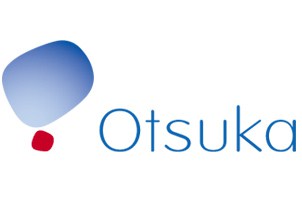
Otsuka and its subsidiary Avanir have decided to press on with an investigational drug for the treatment of agitation in Alzheimer’s patients, despite announcing a month ago that it didn’t show a significant reduction in symptoms.
The drug – AVP-786 – missed both the primary and secondary endpoints of the study, failing to show an ability to reduce moderate-to-severe agitation in Alzheimer’s patients.
The investigational therapy is a new formulation of the active ingredients in Otsuka/Avanir’s already-marketed Nuedexta (deudextromethorphan hydrobromide/quinidine sulphate) product.
Despite these results, Otsuka has said it will continue the clinical development programme of AVP-786. According to the company, this decision is based on ‘insights derived from detailed analysis of data from the first and the second phase 3 AVP-786 clinical trials’.
These detailed results will have to show some significant benefit after preliminary findings failed to hit the mark. As well as pressing on with a third phase 3 clinical trial, the company has announced that an additional trial will commence in 2020.
An earlier study of the drug suggested that it was able to achieve a significant reduction in agitation symptoms at one of two doses tested. When the top-line results were released in March, Otsuka described them as ‘encouraging’.
Agitation in Alzheimer’s is characterised by restlessness, insomnia, pacing back and forth and in severe cases verbal and/or physical aggression. There is major unmet need in this area, with no approved treatments currently available.
Otsuka acquired AVP-786 when it bought biotech Avanir in 2014 for $3.5bn – at that time, it said that the investigational AVP-786 therapy was among the main attractions of the business.
Otsuka and Avanir are also studying AVP-786 in mid-stage trials as a treatment for schizoprenia, intermittent explosive disorder and traumatic brain injury, according to Avanir’s current pipeline.
This revival of an initially unsuccessful trial comes on the heels of a similar announcement from Biogen and Eisai. In October, Biogen said that it plans to file its experimental therapy aducanumab for Alzheimer’s disease, despite abandoning the drug in phase 3 earlier this year.
According to Biogen, the results from a subset of patients in the phase 3 ENGAGE study of the drug warrant taking it to regulatory authorities.
It said that patients who received sufficient exposure to high doses of the drug experienced significant benefits on measures of cognition and function, including memory, orientation and language.
Although Otsuka has not revealed what benefit the new analysis of the data has demonstrated, the news is hope for millions of Alzheimer’s patients and for the field of Alzheimer’s research, which has continually faced late-stage setbacks.




